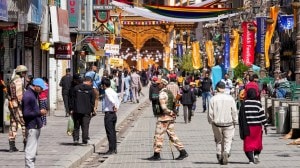Plea challenging Haj subsidy admitted
The Supreme Court on Monday admitted a petition questioning the constitutional validity of the Haj Committee Act, 1959...

The Supreme Court on Monday admitted a petition questioning the constitutional validity of the Haj Committee Act, 1959, that provides annual financial assistance to Muslims going on Haj.
Petitioner Prafull Goradia, a former BJP MP, alleged that the estimated Rs 280 crore annually incurred by the Government for funding the Haj pilgrimage was not only unconstitutional but a drain on the tax payers’ money.
The Union Government, for its part, asserted that “granting subsidy nowhere affects secularism”.
Furnishing its response in an affidavit, the Government had earlier said that similar monetary assistance was being provided to those visiting Amarnath Shrine. The former BJP MP had contended that the provision for special subsidy to Muslims, without any similar assistance to others like Hindus, Christians, Buddhists and Sikhs, was violative of the Constitution. He objected that the state cannot discriminate citizens on the grounds of religion, caste or creed.
The Bench comprising Justices R V Raveendran and L S Panta on Monday decided to admit the petition for further consideration.
Besides challenging the Haj Committee Act, 1959 that provides for the subsidy, the petition has also cited various provisions of the Constitution, including Article 27, which provided “that no person shall be compelled to pay any taxes, the proceeds of which are specifically appropriated for the payment of expenses for the promotion and maintenance of any particular religion or religious denomination…”
The petitioner argued that other communities too had their own special pilgrim places located in Pakistan, Nepal, Sri Lanka, Jerusalem, Bethlehem, Vatican, Japan, Cambodia and elsewhere but no such financial assistance was being extended to them.
It also sought a court direction to the Government to refund the taxpayers’ their money used all these years for funding the Haj pilgrimages.



- 01
- 02
- 03
- 04
- 05



























